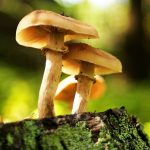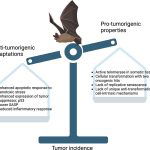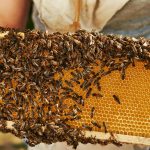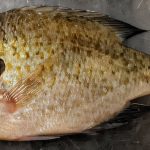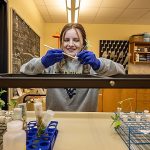Scientists uncover 10,000-mile survival trek across a post-apocalyptic Earth
New research suggests that some of the earliest ancestors of dinosaurs and crocodiles managed to migrate across vast, deadly regions of the Earth over...
How mushrooms could help build stronger, smarter materials
Mushrooms might hold the key to designing better materials—and researchers at Binghamton University are taking a close look.
By studying how mushrooms grow and handle...
Why bats rarely get cancer—and what that could mean for humans
Bats are full of surprises. Not only can they fly and live longer than most animals their size, but new research has revealed another...
Scientists discover 230 giant viruses that shape ocean life and threaten public health
In an exciting new discovery, scientists have identified 230 previously unknown giant viruses living in our oceans—some of which may influence marine food chains...
U.S. bee apocalypse? Scientists uncover cause behind massive hive loss
Scientists at the U.S. Department of Agriculture (USDA) believe they have uncovered the cause behind a massive and alarming collapse of honey bee colonies...
Whales blow bubble rings at humans—and it might be a friendly hello
For the first time ever, scientists have documented humpback whales blowing perfect bubble rings during close and curious encounters with humans.
Much like someone blowing...
Most freshwater fish in southern California carry human-infecting parasites, study finds
A new study has found that more than 90% of freshwater game fish in Southern California are carrying parasites that can infect humans.
These parasites,...
Why the Amazon can’t grow back after gold mining
In the Peruvian Amazon, forests aren’t bouncing back after gold mining—not just because the soil is damaged, but because the land has lost its...
Long-awaited mystery fungus sought by LSD’s inventor discovered
A college student has just solved a decades-old scientific mystery, and her discovery could lead to future breakthroughs in medicine.
Corinne Hazel, an environmental microbiology...
Astronomers find a hidden planet partly in the habitable zone of its star
Astronomers have found another super-Earth. It's about 10 times more massive than Earth, and orbits in the habitable zone of a Sun-like star 2475...


